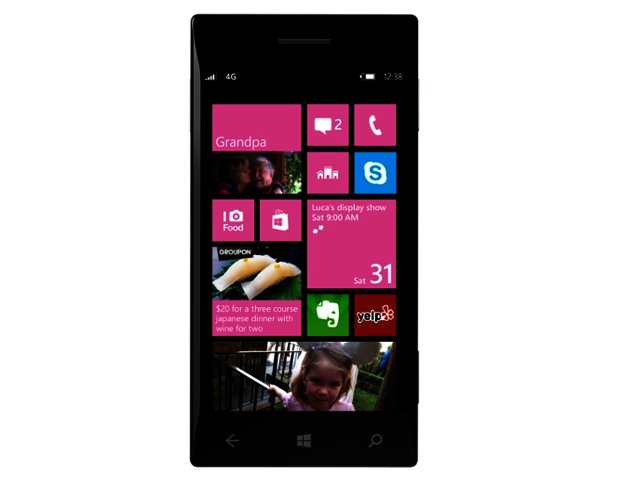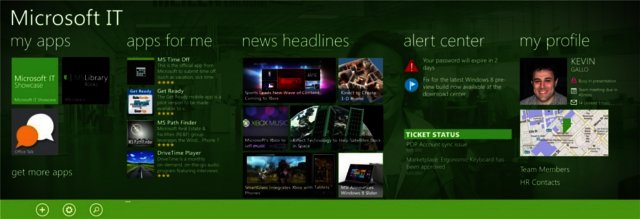Microsoft previews Windows Phone 8
By Hanleigh Daniels 21 June 2012 | Categories: news
After months of speculation and reported specification leaks, Microsoft finally unveils the forthcoming release of its smartphone platform, Windows Phone 8 (WP8). Officially announced yesterday in San Francisco, this mobile operating system (OS) is the Redmond-based software giant’s most advanced mobile platform. It is scheduled to arrive on new smartphones later this year.
WP8 is based on the same core technologies that powers the Windows 8 PC and tablet OS, meaning it shares common networking, security, media, a common file system as well as web browser technology with Windows 8.
Although we are big fans of the gorgeous metro interface within Windows Phone Mango, we have noted on occasion that it lacks the customisability on offer on rival platforms including Android. Windows Phone 8 embraces a redesigned homescreen (video posted below) that features new theme colours as well as three different live tile sizes that a users can change, resulting in a more personalisable user interface.
New features
The fact that Windows Phone 8 shares so much of Windows 8’s core technologies has equipped Microsoft’s mobile platform with a number of new capabilities.
- Chief amongst these is multi-core processor support. Like Android and iOS, Windows Phone OS will now support CPUs with multiple cores. Qualcomm has already confirmed that it will supply the Snapdragon S4 Plus dual-core chipset (up to 1.7 GHz per core) for the initial Windows Phone 8-powered smartphones.
- Larger displays with high-definition (HD) resolutions: Windows Phone 8 supports two new screen resolutions, namely 1280 x 768 and 1280 x 720, enabling OEMs (original equipment manufacturers) to deliver new handsets with 720p displays.
- Flexible storage solutions: Unlike Windows Phone 7.5 (Mango), Windows Phone 8 boasts support for removable microSD cards.
- NFC (near field communication) wireless sharing: This wireless technology enables smartphone users to share multimedia content, your contact info or Office documents over short distances, and read NFC-enabled tags on posters.
- Enhanced voice-activated functionality: Windows Phone 7.5 already sports the ability to send messages, launch web searches and make calls by using your voice. Microsoft has now partnered with Audibleto take this feature to the next level in order to rival Apple’s Siri and Samsung’s S-voice.
- Internet Explorer (IE) 10: Windows Phone Mango brought IE9 to Windows Phone OS and Windows Phone 8 will feature a mobile browser that sports the same web browsing engine used by Window 8 PCs and tablets. According to Microsoft IE 10 is quicker and more secure than its predecessor and also adds features such as SmartScreen filter to block dangerous websites and malware.
- Wallet: Windows Phone 8 adds new digital Wallet functionality to Redmonds smartphone platform, which is able to securely save all of a user’s debit and credit card info, coupons, boarding passes, and the like within one digital location. In addition, Wallet can also be paired with a secure SIM from a user’s carrier, allowing them to make wireless payment by tapping their device at compatible checkout counters.
- Say goodbye to Bing Maps as Windows Phone 8 will use Nokia’s excellent mapping software as part of the platform. It will no longer be Lumia users only who are able to make use of Espoo’s detailed maps, turn-by-turn navigation and the ability to store maps offline so you can access these sans the costly data connection.
- Deep Skype integration: According to Engadget, video calling and VOIP (voice over IP) services will be integrated into Windows Phone 8. Skype calls will also be integrated with standard smartphone features the likes of call waiting.
- Microsoft has also added some functionality aimed at raising its appeal to corporate users. These include device encryption and enhanced app sandboxing, which ensures that the smartphone is protected from malware via multiple layers of security. The new company hub allows firms to create their own Windows Phone 8 hub along with custom apps for its employees (Microsoft’s one pictured below).

Will Windows Phone Mango users be updating to Windows Phone 8?
Unfortunately, users of Windows Phone OS-running smartphone such as Samsung’s Omnia- and Nokia’s Lumia range will not be able to update their devices to Windows Phone 8. Instead, owners of Mango-operating handsets will be able to upgrade to Windows Phone 7.8 later this year.
Joe Belfiore, Microsoft’s senior VP and Windows Phone manager explained that: “Windows Phone 8 is a generation[al] shift in technology, which means that it will not run on existing hardware. BUT we care deeply about our existing customers and want to keep their phones fresh, so we’re providing the new Start screen in this new update.”
Microsoft stated that new applications designed specifically for Windows Phone 8 will not be made available for Windows Phone 7 devices, but apps that work on Windows Phone 7 (now over 100 000) will run on Windows Phone 8 smartphones.
In related news, Microsoft recently unveiled its Windows 8 and Windows RT-powered tablet range dubbed Surface and also revealed an exciting development in Xbox Smart Glass, aimed at bridging the divide between tablet devices and the Xbox 360.
Most Read Articles

Have Your Say
What new tech or developments are you most anticipating this year?



